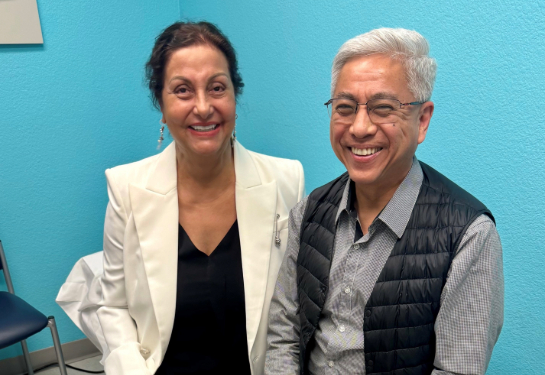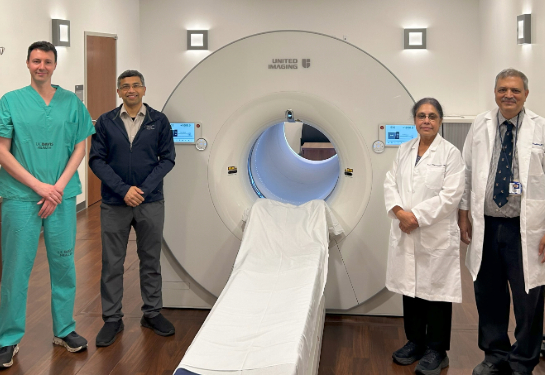UC Davis AI leaders encourage organizations to integrate social determinants of health at the point of care
UC Davis Health faculty, staff, students and community members are invited to participate in a challenge to help evaluate patients’ social determinants of health (SDOH) when delivering care.
The call to action is led by VALID AI — a collective of health systems, insurance carriers and partners that includes UC Davis Health — which promotes the use of generative AI in health care. VALID AI is encouraging organizations worldwide to use a screening method called social vital signs to identify a patient’s social needs.
Social Vital Signs is a useful tool for evaluating a patient’s SDOH — factors such as socioeconomic status, language and literacy skills, neighborhood, employment, social support networks and access to healthcare. These determinants are crucial in shaping an individual’s health outcomes and risks. Despite their significance, SDOH are often overlooked, hidden within unstructured notes, or insufficiently captured during patient assessments.
Evidence has been building on the need for making SDOH available as Social Vital Signs. However, real-world implementation of Social Vital Signs has lagged due to technology, data-sharing and policy barriers. The goal of the challenge is to elicit health care partners to work together to make SDOH variables like housing and transportation as accessible and actionable as blood pressure monitoring.
“I hope this challenge and call to action will activate organizations of all sizes to work together in an open innovation framework to make social vital signs a reality for all care settings irrespective of geographic location or practice type,” said Ashish Atreja, CIO and chief digital health officer at UC Davis Health and founding chair for VALID AI.
I hope this challenge and call to action will activate organizations of all sizes to work together in an open innovation framework to make social vital signs a reality for all care settings irrespective of geographic location or practice type.”—Ashish Atreja
VALID AI’s 40+ member organizations will serve as co-hosts in each state to support Gen AI testing environments and workstreams. They, in turn, will assist organizations, researchers, students, patients, and community members tackle a series of mini challenges that currently prevent the widespread adoption of social vital signs in clinical practice.
The output from a series of mini challenges will be made available as part of a Gen AI SDOH Toolkit that aims to:
- Develop a database of content and standards related to SDOH
- Create tools to help providers improve clinical documentation to capture SDOH
- Leverage generative AI and other technologies to identify and predict SDOH indicators
- Create dashboards to allow providers to exchange electronic health care data on SDOH
- Identify local SDOH gaps and find solutions to address those needs
Organizations and individuals can join in the challenge by visiting VALID AI’s website and clicking on “pledge for social vital signs.”




